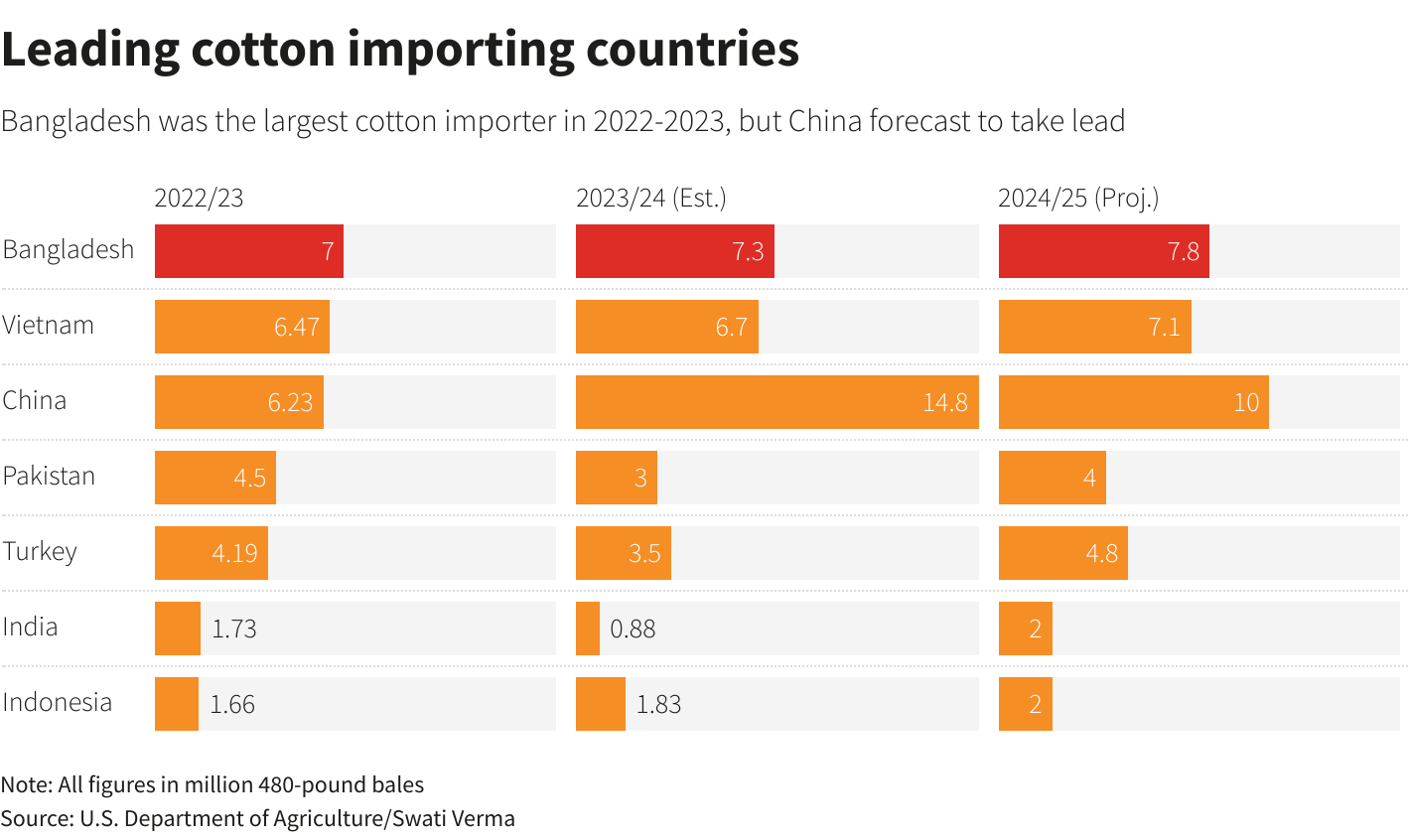
Bangladesh’s garment industry is facing a cotton shortage as worsening floods add to the growing backlog caused by ongoing protests
6 months ago
Bangladesh’s garment industry is facing a cotton shortage as worsening floods add to the growing backlog caused by ongoing protests

Summary:
• Factories face pressure following protest-related shutdowns.
• Floods disrupt cotton supply chains through Chittagong port.
• Cotton imports may shift to India, Pakistan, and Vietnam.
• Ongoing energy shortages continue to hinder production.
Bangladesh’s garment factories, one of the largest clothing producers globally, are struggling to meet production deadlines as severe flooding disrupts cotton supplies. The situation worsens a backlog caused by recent political unrest and factory closures, with output dropping by 50%, according to Mohammad Hatem, president of the Bangladesh Knitwear Manufacturers and Exporters Association.
The country, a major cotton importer due to its massive textile industry, relies on the Chittagong port for deliveries. However, last week’s floods have prevented many trucks and trains from transporting essential supplies. The supply chain issues compound the difficulties faced by factories, which had already shut down due to protests earlier this month.
Rubana Huq, a Dhaka-based factory owner, noted significant financial losses from reduced production. Her factory alone, which produces 50,000 shirts daily, experienced $250,000 in lost output. Huq estimates that full recovery could take six months, warning that Bangladesh may lose 10-15% of its garment business to competing countries.
The garment industry, which accounts for over 80% of Bangladesh’s export earnings, is also dealing with cautious buyers who are delaying new orders. Shahidullah Azim of the Bangladesh Garment Manufacturers and Exporters Association expressed concern that prolonged uncertainty could undermine the sector's momentum.
As monsoon rains continue, the Bangladesh Meteorological Department warns that flood conditions may persist, with slow receding water levels. Commodity analysts suggest that some cotton shipments could be diverted to countries like India, Pakistan, and Vietnam to meet demand. Atul Ganatra, president of the Cotton Association of India, mentioned that new orders previously destined for Bangladesh could be fulfilled in southern India.
Adding to the strain, energy shortages, which were an issue even before the floods and protests, are further impeding production. Factories remain under immense pressure to resolve these challenges to stabilize operations and maintain their position in the global market.
Source: Reuters